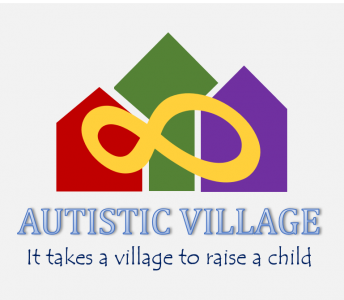This is a repost from Aiden’s personal website. If you enjoy reading it, please do consider supporting them directly by following their own website!
Trigger warning: mention of suicidal thoughts, perceived threat of being murdered
Blessing
I was 13 when I got my diagnosis of autism.
Suddenly, I could access services at school and elsewhere. I started speaking to the special educational needs coordinator. My parents went to sessions where they learned more about autism. We started drawing up transition plans for different stages of life.
Suddenly, I wasn’t alone. There were others like me. I wasn’t making my socialising issues and sensory processing difficulties up. I wasn’t a liar when I said tags aggravated my skin or I couldn’t control my actions sometimes. As someone who hates lying and being lied to, those accusations always hurt me deeply, like the knives I wouldn’t be able to feel physical pain from if I cut myself.
Suddenly, it was okay for someone like me to exist. I wasn’t wrong for being me. I didn’t commit a sin for simply being born into this world.
Curse
I was 13 when I got my diagnosis of autism.
Suddenly, I started to unpick everything: socialising, sensory issues and emotional regulation. I broke my solidly built mask of ‘normalcy’ again and again – even now I sometimes find it on my face. That’s a big ask of anyone, let alone a 13-year-old going at it alone. Because I started to question everything, I seemed more autistic in the first few months after my diagnosis, not less.
Suddenly, I started to attract other teenagers, mostly self-diagnosed. It’s natural – no one wants to struggle alone. I had to, so I wanted to help. However, we were 13 and 14, how could we know how to handle these things sensitively? We didn’t and couldn’t. The result: deep mental scars and a distrust of autistic people that took years to undo, remedied only by coincidence and volunteering with disabled people.
Suddenly, more than before, I condemned my future. I grew up knowing only 16% of autistic adults are in full-time paid employment. I grew up knowing young autistic people are far less likely to go on to do A-Levels or go to university. We die young, with an average lifespan of 36 years.
It’s hard not to internalise those things. My friends would talk about wanting to have kids when they grew up, or what career they wanted – I would talk about being buried deep in the ground before my parents. In combination with being a person of colour and LGBTQ+ especially, I honestly didn’t think I’d live to see 18. I thought someone would murder me. Or that I’d kill myself.
These are the things I took for granted growing up. What breaks my heart for 13-year-old me is I grew up knowing society doesn’t truly care about someone like me.
I was 13.
What does that kind of knowledge do to a 13-year-old? Does it make or break you? How does it affect your self-worth? How does it affect your future?
It broke me. Subtly – I was never surprised by any poor prognosis statistics I learned. Those cracks in my psyche are deep and well-hidden. I simply assumed I had a dim future in store for me, and a short one too. I didn’t really care what happened to me: I fell into volunteering based on the result of a coin flip. ‘Aiden’ means ‘little fire’ in Gaelic, so I would joke that the embers of my life would soon be gone.
Although I’ve always been fairly bright, I didn’t study as hard as I could have. If I were a tiny bit less bright, naturally a straight A* and not a straight high A* student, I wouldn’t have left secondary or sixth form with the grades I did. That would have very materially affected my future.
It made me. I’ve become excellent at picking apart data and the implications of different words in order to learn how to exist semi-functionally in this world. Most importantly, I’m a person with a deep fire inside me that nothing and no one will put out.
You know, I never wanted to have to be this person. Behind all the flashy successes and flashy clothing is a boy who often has nightmares and is sometimes scared to sleep. They don’t want to act strong – they want to feel safe. What I want is to feel safe. So I will be strong to help other people so they don’t feel the way I did.
I was 13. I am (mostly) okay. Not everyone was, is or will be.
